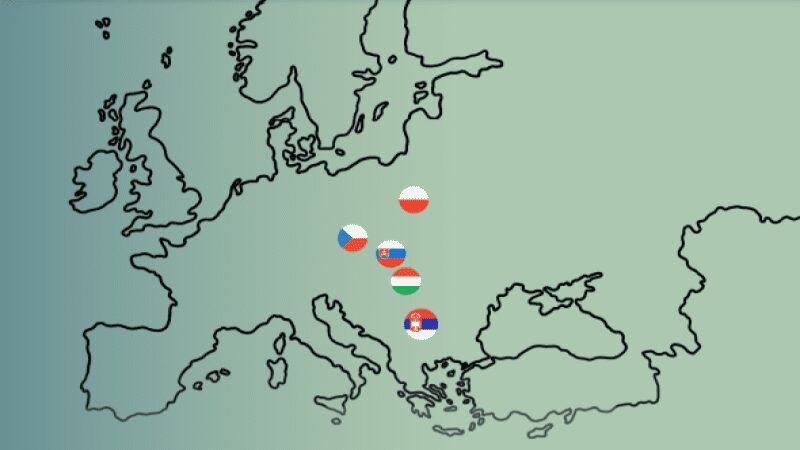The European Green Deal envisions the carbon-neutrality of the continent by 2050. Therefore, although aiming for this goal separately, the member states, along with the EU neighbourhood, have a common benchmark in mind.
Arriving to the transitional problems of the energy sector from various post-industrial backgrounds, these regions approach the strategies of coal phase-out similarly, but with significant path-dependant peculiarities in the Czech Republic, Hungary, Poland and Slovakia.
Diverging from state to state, these scenarios must also tackle the just transition of not only the energy sector, but the unsustainable nature of entire coal-mining regions as well. Encompassed by a highly relevant social and political element, these public negotiations thus, also include governmental and non-governmental actors in every member state of the V4.
In order to give a more detailed insight into these decades-long processes, this publication is assembled of four separate case studies of the V4 countries. They focus on the decarbonisation of the energy sector, and how coal phase-out could be accomplished in energy production by 2050, with the least possible impact on the lives of the local population in the regions, which have relied on coal mining for centuries.
The articles therefore, aim to shed a light on the necessary topdown approaches and strategic decisions on an EU or member-state level, but also on bottom-up initiatives on the local level stemming from municipal stakeholders or NGOs.
You can view the full report at the following link:


